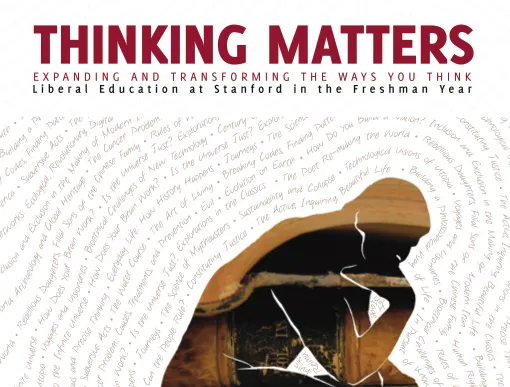Table of Contents
For many Stanford students, this can be a quintessential question: how will activity (X) prepare me for my future? In an article for Inside Higher Ed, Stanford Professor Russell Berman questions the efficacy of learning a language solely to satisfy some future demand in business or foreign policy. He specifically critiques Richard Haass, the president of the Council on Foreign Relations, who expounded this view in a conference last November. Berman asks, “….given the poor track record of foreign policy leaders in anticipating national needs, why should we suddenly treat their analyses as the touchstone for curricular planning?”
Berman’s argument extends to individuals choosing a language based on predicted future career value as well. Right now, many students are running to languages like Mandarin, Farsi, Arabic, and Russian. But whether or not the state department and business will need droves of Mandarin speakers cannot be known. Urdu, Tagalog, Portugese, and Swahili could rise to the scene due to unforeseen foreign policy circumstances. Learning Mandarin will by no means hurt a student. But the demand for certain languages can fluctuate from college-age to mid-career, so when choosing a language, one might want to consider other motivating factors as well.
To be sure, career considerations can and should factor into your foreign language decision, but learning a language has value beyond just preparing to serve the welfare of the United States through foreign service. Berman gives convincing alternatives for learning foreign languages:
With the core language skills — abilities to speak and to listen, to read and to write — come higher-order capacities: to interpret and understand, to recognize cultural difference, and, yes, to appreciate traditions, including one’s own…through language we become better thinkers, and that’s what education is about, at least outside Washington.
Learning a language like German, which some might call unnecessary due to how many Germans already speak English, can be beneficial just for the thought process one must go through when learning the language. It also shines a new light on English, and prepares one for the German canon, a literary collection that was vital to the development of Western Civilization. To read many philosophers in their original language (think Kant, Nietzsche, and Hegel), one must know German. This is not to discount, though, that the “hot” languages like Mandarin and Farsi also present interesting cultures and literature with which to engage, far beyond just a business or foreign policy level of engagement. Taking a language due to an interest in the literature, culture, food, or mathematical texts of a language, for all anyone knows, will give someone a step ahead for a future in the State Department or business just as much as taking one of the more popular languages.
Ultimately, I might end up taking Mandarin, or Arabic, or Russian, while I’m at Stanford. It’s a good investment without that much risk. The Chinese economy will likely continue to grow and trade with the U.S., while the Middle East will remain on America’s foreign policy radar and Russia will still have its large stockpile of nuclear weapons. But I will not start taking those languages until I have achieved greater fluency in German, and until I have engaged in German culture and history in such a way that I can look at my own culture and history with new eyes. The content of my 18th century German literature class may not help me much in my stateside career, but the thinking and analysis that I perform while learning the language and the mental development will always be valuable.





